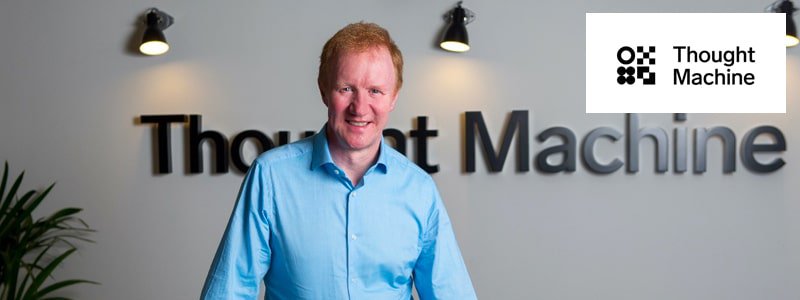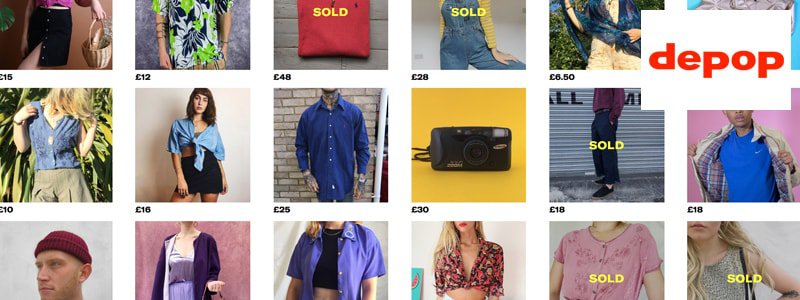The UK’s growing herd of VCT and EIS-backed unicorns
Archived article
Archived article: please remember tax and investment rules and circumstances can change over time. This article reflects our views at the time of publication.
By the end of December 2021, the UK start-up community had bred over 120 tech unicorns – private tech companies valued above $1 billion – more than France and Germany combined.
The trend appears to be accelerating. The number of unicorns has more than doubled since 2017, with 29 new UK tech companies achieving unicorn status in 2021, compared to seven in 2020.
Interestingly, ten of the UK’s unicorns have been backed by VCTs and EIS funds. You can read more below.
Please remember, past performance is not a guide to the future. VCTs and EIS invest in young companies that can and do fail.
Important: The information on this website is for experienced investors. It is not advice nor a research or personal recommendation to invest. If you’re unsure, please seek advice. VCT and EIS investments are high risk and you could lose the money you invest.
Read more on:
- Zoopla – Octopus Ventures
- Graphcore – Amadeus Capital Partners
- Cazoo – Octopus Ventures
- Gousto – MMC Ventures and Hargreave Hale
- ManyPets (formerly Bought by Many) – Octopus Ventures
- Depop – Octopus Ventures
- Matillion – British Smaller Companies
- Wejo – Seneca Partners
- Interactive Investor – Unicorn
- Thought Machine – Molten Ventures
1. Zoopla – Octopus Ventures
Zoopla was the first company backed by a VCT and EIS to achieve unicorn status. It is now a household name.
Founded by Alex Chesterman and Simon Kain, the idea behind Zoopla was inspired by the successful US property search and information website Zillow.
The business first launched in 2008, when the UK property market was reeling from the impact of the global financial crisis, and the economic outlook was very poor. Nonetheless, Octopus invested in the business in 2009 having backed Alex and Simon in their previous venture, LoveFilm.
By 2010, Zoopla had overtaken a number of long-established rivals to become one of the UK’s top three property websites, attracting over 5 million visitors a month. In 2014, Zoopla Property Group floated on the London Stock Exchange with a market capitalisation of $1.56 billion. Octopus fully exited its investment in February 2017, realising an average return of 6x for investors.
Past performance is not a guide to the future.
See Octopus Titan VCT performance track record
Octopus Titan VCT fully exited Zoopla in February 2017. The VCT has announced its intention to launch a new offer – you can register your interest online.
Experienced investors could get exposure to companies like Zoopla (albeit not Zoopla itself) by investing in Octopus Ventures EIS, which is currently open for subscription.
2. Graphcore – Amadeus Capital Partners
Dubbed the “Intel of AI”, Graphcore created a new generation of microchips, designed specifically for machine learning and artificial intelligence. Graphcore’s Intelligence Processor Unit accelerates machine learning model training by up to 100x compared with current systems.
The business was founded in 2016 by experienced entrepreneurs Simon Knowles and Nigel Toon, who sold their previous semiconductor business, Icera, to NVIDIA for $367 million. In late 2016, Graphcore raised its first round of funding from a host of high-profile venture capital firms, including Amadeus Capital Partners, who backed it within its Early-Stage EIS fund.
The company achieved unicorn status after being valued at $1.7 billion following the completion of a $200 million funding round led by existing investor Atomico and including BMW and Microsoft Ventures. In 2019, it announced a close partnership with Microsoft which will see its IPU become available to users of Microsoft’s Azure platform. Graphcore also partnered with Dell to offer its server to datacentres.
In 2021, the business raised a further $222 million at a $2.8 billion valuation, bringing total funds raised to $710 million.
Past performance is not a guide to the future.
See Amadeus Early-Stage EIS Fund performance track record
Experienced investors could get exposure to companies like Graphcore (albeit not Graphcore itself) by investing in the Amadeus Early-Stage EIS Fund. The fund is planning to reopen to investment shortly – to be alerted when it opens register your interest online.
3. Cazoo – Octopus Ventures
Cazoo, the brainchild of Alex Chesterman (co-founder of Zoopla), aims to make the experience of buying a used car quick and hassle-free. Similar to other online goods, customers can place an order and have the car on their driveway 72 hours later.
After receiving a call in November 2018 from Alex about Cazoo, it took the Octopus Ventures team ten days to close the investment, having backed him during his previous two ventures (Zoopla and LoveFilm).
Cazoo launched in December 2019. In its first three months of trading it generated revenue of £20 million. By October 2020, it reported revenues of £100 million. The business attracted £80 million of investment pre-launch (£5 million of which was through Octopus Titan VCT) and an additional £285 million post-launch. It became the UK’s fastest ever “unicorn” in June 2020 – just 18 months after the company was founded.
In March 2021, it was announced that Cazoo intended to list in New York via a $7 billion merger with Ajax I, a special-purpose acquisition company. The deal completed in August 2021. In 2022, Cazoo has seen its share price fall following a deterioration in investor sentiment, with the shares now significantly below their listing price.
Past performance is not a guide to the future. See above for Octopus Titan VCT performance track record.
Cazoo is currently one of the largest holdings in the Octopus Titan VCT portfolio, so VCT shareholders will have some exposure. The VCT has announced its intention to launch a new offer – you can register your interest online.
Experienced investors could get exposure to companies like Cazoo (albeit not Cazoo itself) by investing in Octopus Ventures EIS, which is currently open for subscription.
4. Gousto – MMC Ventures and Hargreave Hale
Gousto’s co-founders Timo Boldt and James Carter presented their young business on BBC’s Dragon’s Den in 2013 – but failed to secure the dragons’ backing. Nine years later and Gousto is now the UK market leader in subscription-based recipe box delivery.
The company employs machine learning to optimise production efficiency and anticipate individual customer preferences – allowing it to outpace its rivals and reduce food waste. It also focuses on reducing plastics and other non-renewable materials in its packaging.
The Covid-19 pandemic acted as an accelerant for the business; revenues in the year to December 2020 rose to £189 million, up from £82.5 million in 2019. The growth continued into 2021, with 25 million meals sold in the first three months of the year, equivalent to three meals a second, and revenue hitting £315.3 million.
As at January 2022, the business was valued £1.4 billion (up from £780 million in late 2020) with investment from Barclays, HSBC and Softbank.
Past performance is not a guide to the future.
See Hargreave Hale AIM VCT performance track record
See MMC Ventures performance track record
Gousto is currently one of the largest holdings in the Hargreave Hale AIM VCT portfolio, so VCT shareholders will have some exposure. The VCT has announced its intention to launch a new offer – you can register your interest online.
Experienced investors could also get exposure to companies like Gousto (albeit not Gousto itself) by investing in MMC Ventures EIS Fund. The fund is currently closed for subscription, but you can register your interest online.
5. ManyPets (formerly Bought by Many) – Octopus Ventures
Co-founded by Stephen Mendel and Guy Farley in 2012, ManyPets (previously Bought by Many) began life as an insurance broker. It negotiated better terms and more appropriate cover for its clients by grouping those with similar needs together.
In 2017, after listening to the needs of its customers, ManyPets launched its own disruptive brand of pet insurance, which won a number of awards, including Best Pet Insurance Provider of the Year at the 2020 Insurance Choice Awards. Today, the business insures over half a million pets globally, including in the US, where it launched in 2021.
ManyPets experienced significant growth – it more than doubled gross written premiums annually to £220 million in 2020. In June 2021, Swedish investor EQT led a $350 million funding round which valued the business at $2 billion.
Octopus Ventures first invested into the business in October 2016, and to date has invested nearly £10.0 million. The holding was valued at £127.0 million as at 31 June 2021.
Past performance is not a guide to the future. See above for Octopus Titan VCT performance track record.
ManyPets is currently one of the largest holdings in the Octopus Titan VCT portfolio, so VCT shareholders will have some exposure. The VCT has announced its intention to launch a new offer – you can register your interest online.
Experienced investors could get exposure to companies like ManyPets (albeit not ManyPets itself) by investing in Octopus Ventures EIS, which is currently open for subscription.
6. Depop – Octopus Ventures
Depop is the social marketplace where people buy, sell and discover unique fashion online. It acts as a virtual, people-owned fashion show, where sellers and buyers can trade directly.
Founded by Simon Beckerman in 2011, Depop began life as a social network where readers of PIG (People in Groove) magazine could buy items from the young creatives featured in the magazine. Today, Depop has grown to over 24 million users globally and is the 10th most visited shopping site in the US for “Generation Z” consumers.
In 2020, the value of goods sold on Depop’s marketplace grew to $650 million, generating revenues of $70 million, double that of the prior year.
Octopus Ventures first invested in the business in January 2018 via Octopus Titan VCT, and participated in a further funding round in 2019, investing £8.8 million in total.
The growth of Depop eventually drew the gaze of Etsy, the Nasdaq-listed online marketplace. Etsy acquired Depop in June 2021 for $1.625 billion, generating an 11.1x return for the Octopus Titan VCT.
Past performance is not a guide to the future. See above for Octopus Titan VCT performance track record.
Octopus Titan VCT exited Depop in June 2021. The VCT has announced its intention to launch a new offer – you can register your interest online.
Experienced investors could get exposure to companies like Depop (albeit not Depop itself) by investing in the Octopus Ventures EIS, which is currently open for subscription.
7. Matillion – British Smaller Companies

Founded in 2010, Matillion is one of the world’s leading cloud data integration platforms. Its software allows customers to extract data from a wide number of sources, load it into cloud data warehouses, and transform it into useful, analytically ready data.
Matillion featured in the Deloitte Fast 50 (2020), with 922% revenue growth over the previous four years. Customers reportedly include Cisco, Siemens, Novartis, Amazon and Accenture.
In 2021, cloud-based data storage and analytics giant Snowflake named Matillion data integration partner of the year and invested in the business in 2022. Matillion also entered into a solution partnership with global software pioneer, Software AG.
The British Smaller Companies VCTs first backed the business in November 2016, investing £3.5 million. It has since completed several investment rounds with high-profile US technology investors including Battery Ventures, Sapphire Ventures and Scale Venture Partners. Matillion achieved unicorn status in September 2021, after completing its Series E funding round, raising $150 million at a $1.5 billion valuation. In 2022, Matillion received investment from Snowflake, although terms of the deal have not been disclosed.
Past performance is not a guide to the future.
See British Smaller Comapnies VCTs performance track record
Matillion is currently among the largest holdings in the British Smaller Companies VCTs.
Experienced investors could get exposure to it and other similar companies by investing in the British Smaller Companies VCTs. The VCT is not currently open for subscription, but you can register your interest online.
8. Wejo – Seneca Partners
Wejo is a connected vehicle data start-up. Every day, it collects and analyses data from 66 million journeys across a network of 10.7 million live vehicles, which it then sells under licence to insurance companies, local authorities and breakdown services. It also believes it can help reduce congestion and pollution, forecast traffic and identify incident hotspots. Clients include General Motors, Hyundai, and Daimler AG.
Seneca Partners first invested £1.3 million in 2016 via its EIS fund and followed on with a further £2.5 million across two further funding rounds in 2017 and 2018.
Wejo has also received significant funding from backers including Hella, DIP Capital, and the British Government. In 2019, General Motors invested €91 million for a 35% stake, valuing the company at €244 million.
In May 2021, Wejo announced plans to list publicly in the US via a reverse merger with Virtuoso Acquisition Corporation, a Special Purpose Acquisition Company (SPAC). The transaction implied an enterprise value of $1.1 billion and completed in November 2021. Like Cazoo, Wejo has struggled as a public company, with the shares falling significantly since listing.
Past performance is not a guide to the future.
See Seneca EIS Portfolio Fund performance track record
See Seneca Growth Capital VCT performance track record
Experienced investors could get exposure to companies like Wejo (albeit not Wejo itself) by investing in the Seneca EIS Portfolio Fund or the Seneca Growth Capital VCT – both managed by the same investment team.
Both the VCT and the EIS fund are currently open for investment – you can apply online
9. Interactive Investor – Unicorn

Founded over 25 years ago, Interactive Investor (ii) is today the UK’s second-largest online investment platform. It employees more than 600 staff, serving 400,000 customers with £59 billion of assets.
MMC Ventures initially invested in the business in 2010, and ii received further funding from the Unicorn AIM VCT in 2013. Since then it has built its position through a series of acquisitions, adding £14 billion of assets with the acquisition of TD, £9 billion from Alliance Trust Savings, £4 billion from The Share Centre and £5 billion from EQi.
2020 proved a major catalyst for the business: with revenues rising by 63% and its active customer numbers rise by 154%. The trend continued into the first half of 2021, with revenues up 12%.
In December 2021 asset management giant abrdn announced plans to acquire the company for £1.49 billion. The deal completed in May 2022.
Past performance is not a guide to the future. See above for MMC Ventures performance track record.
See Unicorn AIM VCT performance track record
MMC Ventures exited Interactive Investor towards the end of 2021. Experienced investors could get exposure to companies like Interactive Investor (albeit not the company itself) by investing in MMC Ventures EIS Fund. The fund is not currently open for subscription, but you can register your interest online.
Unicorn AIM VCT exited ii in May 2022. Experienced investors could get exposure to companies like Interactive Investor (albeit not the company itself) by investing in Unicorn AIM VCT. The VCT is not currently open for subscription, but you can register your interest online.
10. Thought Machine – Molten Ventures

The introduction of IT systems into the banking and financial services sector played a pivotal role in the 1980s financial Big Bang. Whilst still at the core of many established companies, these systems are now starting to creak, creating substantial risks and limiting fast-paced innovation.
Thought Machine, founded by Paul Taylor in 2014, seeks to solve these problems by applying Google style cloud computing technology to the financial sector. Paul, who previously worked as a technical lead at Google, previously founded two successful software business which were acquired by Nuance and Google.
Thought Machine’s first commercial partnership with Lloyds Banking Group in 2018 included a $25 million investment. Since then it has attracted partnerships or investments from banks around the world, including Standard Chartered, SEB, JP Morgan, ING and Morgan Stanley.
In May 2022, Thought Machine announced it had raised $160 million series D funding, led by Singaporean investor Temasek. The round valued the business at $2.7 billion, a 100% increase on the companies last funding round.
Past performance is not a guide to the future.
See Molten Ventures VCT performance track record
Thought Machine is currently among the largest holdings in the Molten Ventures VCT.
Experienced investors could get exposure to it and other similar companies by investing in the Molten Ventures VCT. The VCT is not currently open for subscription, but you can register your interest online.
Wealth Club aims to make it easier for experienced investors to find information on – and apply for – investments. You should base your investment decision on the offer documents and ensure you have read and fully understand them before investing. The information on this webpage is a marketing communication. It is not advice or a personal or research recommendation to buy any of the investments mentioned, nor does it include any opinion as to the present or future value or price of these investments. It does not satisfy legal requirements promoting investment research independence and is thus not subject to prohibitions on dealing ahead of its dissemination.







